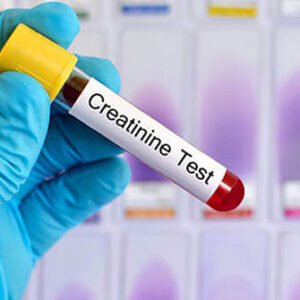Urea Test
- Urea Test: The Urea test measures the concentration of urea nitrogen in the blood, a waste product formed from protein metabolism in the liver. Urea is primarily excreted by the kidneys, making this test a key indicator of kidney function and overall metabolic health.
- Purpose: This test is used to assess kidney health, evaluate hydration status, and monitor conditions affecting protein metabolism or kidney function. It helps diagnose kidney diseases and liver conditions.
- Interpretation:
- Low Urea Levels: May indicate liver dysfunction, malnutrition, or overhydration.
- High Urea Levels: Can suggest kidney dysfunction, dehydration, or high protein intake.
BUN (Blood Urea Nitrogen) Test
- BUN Test: The Blood Urea Nitrogen (BUN) test measures the level of urea nitrogen in the blood, reflecting the body’s protein metabolism and the kidney’s ability to excrete waste products.
- Purpose: The BUN test is primarily used to evaluate kidney function, monitor patients with existing kidney disease, and assess hydration status. It is commonly included in routine metabolic panels.
- Interpretation:
- Low BUN Levels: May indicate liver disease, malnutrition, or excessive hydration.
- High BUN Levels: Can suggest impaired kidney function, dehydration, or conditions leading to increased protein breakdown.
Creatinine Test
- Creatinine Test: The Creatinine test measures the level of creatinine in the blood, a waste product generated from muscle metabolism. The kidneys filter creatinine out of the blood, making this test a reliable marker of kidney function.
- Purpose: This test is used to assess kidney health and function, diagnose kidney disease, and monitor the effectiveness of treatment in patients with renal impairment. It is often part of a renal panel.
- Interpretation:
- Low Creatinine Levels: May indicate reduced muscle mass or conditions affecting muscle metabolism.
- High Creatinine Levels: Suggest impaired kidney function or kidney disease, as creatinine accumulates when the kidneys are unable to filter it effectively.
Clinical Relevance
These tests are frequently used together to provide a comprehensive assessment of kidney function. Elevated levels of urea and creatinine may indicate renal dysfunction, while low levels may suggest different metabolic or health issues. Monitoring these parameters is crucial in managing patients with chronic kidney disease and other related conditions.












Reviews
There are no reviews yet.